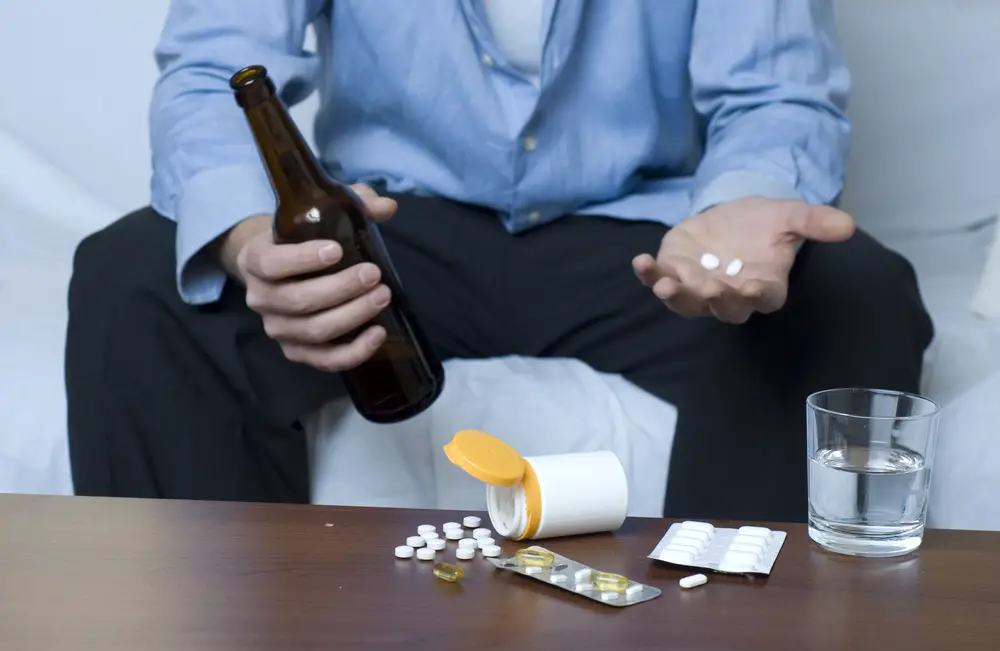As a BetterHelp affiliate, we receive compensation from BetterHelp if you purchase products or services through the links provided
Outpatient rehab programs for drug addiction are an essential option for individuals seeking recovery while maintaining their daily responsibilities. Unlike inpatient treatments that require a stay at a facility, outpatient rehab provides flexible therapy sessions that can be scheduled around work, school, or family commitments. This approach to addiction recovery is practical and empowering, as it allows for the integration of treatment into the patient’s everyday environment, fostering independence and self-reliance.

Customized Recovery Plans
Each individual’s path to recovery is unique, and outpatient rehab programs excel in offering personalized treatment plans. These plans are tailored to meet each patient’s needs and circumstances, utilizing evidence-based therapies and interventions. Personalized plans ensure that the recovery process addresses the root causes of addiction, alongside any co-occurring mental health disorders, providing a more holistic approach to healing.
Continuous Support Network
Outpatient rehab is vital in fostering a robust support network for individuals on their recovery journey. This network comprises healthcare professionals, dedicated family members, and peers who understand the challenges firsthand. By nurturing this interconnected support system, patients are better equipped for sustained, long-term recovery. The provision of regular counseling sessions, including both one-on-one and group formats, serves as a cornerstone for individuals to openly share their experiences, exchange coping mechanisms, and solidify their dedication to achieving and maintaining sobriety.
Flexibility and Convenience

The flexibility of outpatient rehab programs is a significant advantage for many individuals seeking treatment. The ability to schedule therapy sessions around personal and professional commitments provides convenience and ensures patients can prioritize their well-being without sacrificing other responsibilities.
Outpatient detox programs offer particular advantages to professionals such as physicians, pilots, nurses, law enforcement officers, and single parents. These programs allow them to address their recovery needs without taking prolonged breaks from significant work or family duties. The flexibility and personalized approach of outpatient drug rehab make it an ideal choice for those committed to overcoming addiction while balancing life’s other responsibilities. This tailored approach to care allows for a seamless integration of recovery into their daily lives, making it more manageable and effective in the long run. By removing barriers to seeking treatment, outpatient rehab programs offer a supportive environment that encourages sustained progress and holistic healing.
Cost-Effectiveness
Compared to inpatient programs, outpatient rehab is often more cost-effective, making it a viable option for a wider range of individuals. The ability to live at home eliminates the costs associated with residential treatment, such as accommodation and round-the-clock care, making recovery financially more attainable for many families. Additionally, outpatient programs offer flexibility in scheduling, allowing individuals to continue with work or school commitments while receiving treatment. This convenience can lead to a smoother transition back to daily life post-rehabilitation. Outpatient rehab provides a supportive environment for recovery outside the confines of a residential facility.
Real-World Application
Engaging in outpatient rehab provides a crucial bridge for patients to apply the coping strategies and skills acquired in therapy to real-life scenarios. This direct translation of learned tools to daily life situations is invaluable for individuals seeking to navigate and conquer the triggers and stressors they encounter. The supportive environment and guidance from the therapy team play a pivotal role in helping patients build resilience and adaptability in facing challenges outside the treatment setting. By honing these skills within a familiar context, individuals strengthen their capacity to sustain sobriety and lead fulfilling lives beyond the confines of formal treatment.
Ongoing Aftercare and Relapse Prevention
Successful outpatient rehab programs prioritize comprehensive aftercare planning to ensure patients receive continued support post-treatment. This includes personalized aftercare plans tailored to each individual’s needs, ongoing therapy sessions with licensed professionals, regular support group meetings for additional encouragement, and access to various relapse prevention resources such as coping strategies and emergency contacts.
Aftercare is vital to sustaining the progress made during treatment, offering a safety net for individuals navigating their recovery journey in the long term. Additionally, involving family members in the aftercare process can enhance the individual’s support system and overall recovery outcomes.
Outpatient rehab programs offer a comprehensive, flexible, and accessible path to recovery for those battling drug addiction. These programs are crucial in facilitating sustained recovery and reintegration into everyday life by providing customized treatment plans, a continuous support network, and the practical application of coping strategies in real-world scenarios. The emphasis on cost-effectiveness and ongoing aftercare underscores the commitment of outpatient rehab to support individuals during the treatment phase and as they forge their path toward long-term sobriety and wellness. Ultimately, the success of outpatient rehab lies in its ability to adapt to patients’ individual needs, empowering them to take control of their recovery and lead fulfilling lives. For example, opioid detox within outpatient rehab programs often involves a combination of medication-assisted treatment and counseling sessions tailored to address the physical and psychological aspects of addiction. This holistic approach ensures that individuals receive comprehensive care while navigating the challenges of withdrawal and preparing for ongoing recovery efforts.
- Stress Management: What is the Relationship Between Stress and Addiction? - June 28, 2024
- Exploring Techniques to Maintain a Healthy Lifestyle without Drugs - May 28, 2024
- How Acupuncture Helps Treat Chronic Fatigue Syndrome - May 28, 2024
This site contains affiliate links to products. We will receive a commission for purchases made through these links.




